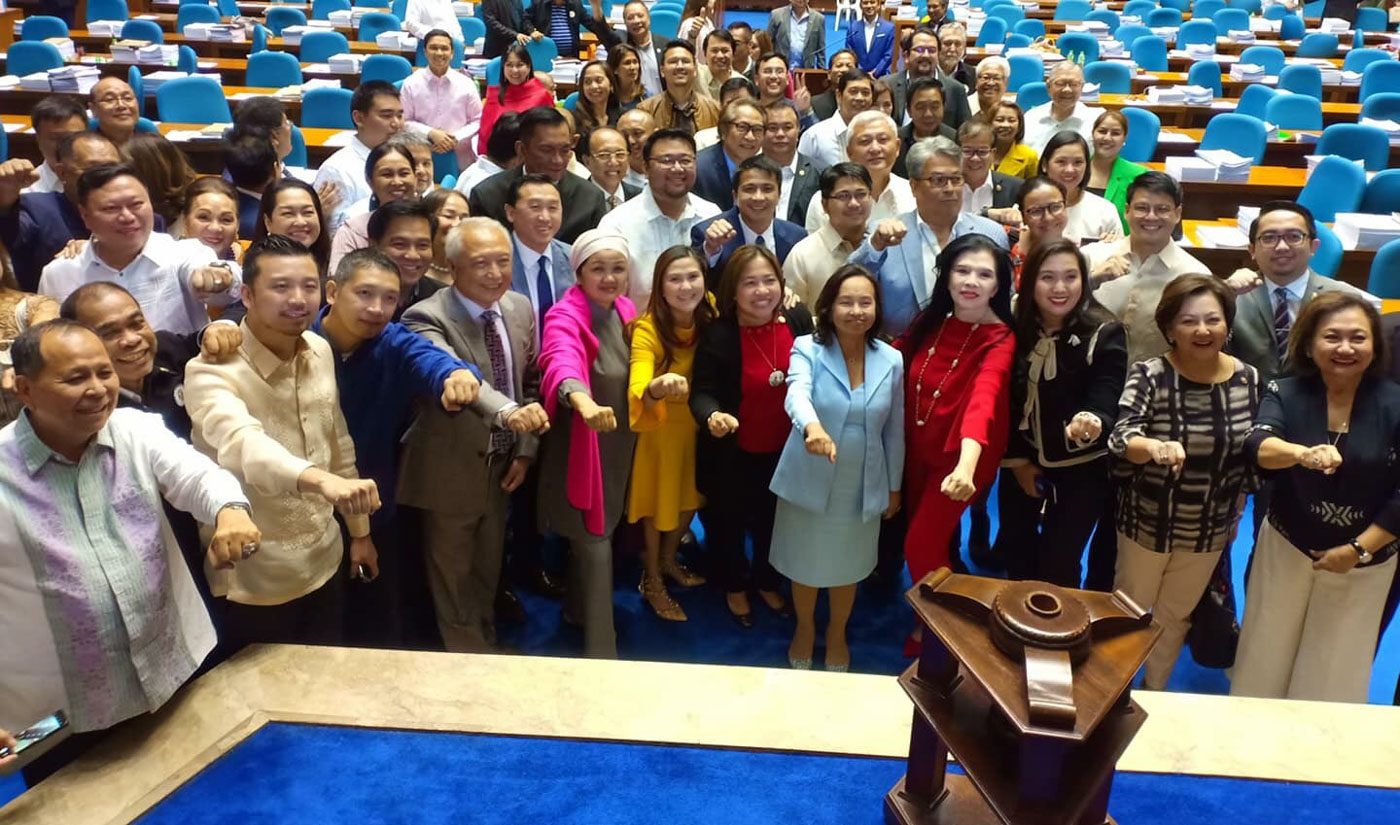SUMMARY
This is AI generated summarization, which may have errors. For context, always refer to the full article.

MANILA, Philippines – The proposed constitution in the House of Representatives does not provide for any number of states when the Philippines shifts to the federal system of government, and instead leaves it with local government units to group themselves and ask Congress to turn them into states.
This makes the latest draft, authored by Speaker Gloria Macapagal Arroyo and 21 other lawmakers, different from the one submitted by the Consultative Committee (ConCom) earlier created by President Rodrigo Duterte.
The Con-Com’s draft would create 18 federated regions – 16 federated regions (including the new Negrosanon region) and the federated regions of Bangsamoro and Cordillera.
Resolution of Both Houses (RBH) No. 15, meanwhile, would not impose the division of the Philippines into a specific number of federal states. It would instead give localities the option to petition Congress to turn them into federal states.
Section 12, Article XII, of RBH 15 stipulates that a federal state may be created in any part of the country “upon a petition addressed to Congress” by any contiguous, compact, and adjacent provinces, highly urbanized and component cities, and cities and municipalities in metropolitan areas.
The petition must take the form of a “resolution of their respective bodies.” This petition, once approved by Congress, will still have to get the majority of votes in a plebiscite that would be conducted in the political units concerned.
Section 12 also says that in “exceptional cases,” a province may be established as a federal state based on area, population, geographical distance, environmental, economic, and fiscal viability, and “other special attributes.”
Speaker Gloria Macapagal Arroyo said she was the one who added Article XII on Local Governments and Federal States in RBH 15. (READ: Arroyo’s draft constitution removes lawmakers’ term limits)
“My only provision was the one on how to establish a federal state. Because you remember the Cabinet members that were objecting the whole concept [of federalism] because they were objecting the revenue provisions. So, I said, we should remove revenue provisions and make it like the model of Bangsamoro, wherein it is the people who will petition and then Congress will have an organic act for every region that is being petitioned,” said Arroyo on Tuesday, October 9.
House committee on constitutional amendments chair Vicente Veloso told Rappler that municipalities, cities, provinces, and regions may opt not to apply to become federal states.
“So those like NCR (National Capital Region), they’re not interested in becoming state, then they will not become a state,” said Veloso.
Why this manner of creating federal states? Veloso said this is his panel’s response to the criticism of President Rodrigo Duterte’s economic managers that the shift to federalism would be too costly, and that the 17th Congress has limited time left to amend the 1987 Constitution.
Socioeconomic Planning Secretary Ernesto Pernia had warned that expenditure for the shift to federalism would be “immense” and would “wreak havoc” on the country’s fiscal situation. He estimated that the fiscal deficit-to-gross domestic product ratio “can easily jump to maybe 6% or more.” (READ: Business groups support economic managers over federalism risks)
According to Veloso, these criticisms “triggered a lot of debates” in the House constitutional amendments committee. He proposed to just have 3 federated regions: Luzon, Visayas, and Mindanao. Others wanted 7 or 14 states instead.
“Remember, we are working on limited time. The committee had only two options: kill the federal state matter or save it,” said Veloso.
The committee decided to kill the provision, Veloso said, having realized that lawmakers needed more time to decide on provisions covering the creation of federated states.
The idea is for RBH 15 to give the 18th Congress or future Congresses the “continuing” responsibility to study the economic aspects of the federal shift and to determine the most appropriate number of federal states.
“So we have to save it, but passing the task to Congress as a continuing process of forming the number of states we needed. This will be of the initiative of the provinces, of the regions who would propose to Congress that their group of provinces be already considered as a state,” said Veloso.
Under RBH 15, a federal state would have primary jurisdiction over the following:
- Administrative organization, planning, budget, and management
- Creation of sources of revenues and finance
- Agriculture and fisheries
- Natural resources, energy, environment, indigenous-appropriate technologies and inventions
- Trade, industry, and tourism
- Labor and employment
- Public works, transportation, except railways, shipping, and aviation
- Health and social welfare
- Education and the development of language, culture, arts
- Ancestral domain and natural resources
- Housing, land use and development
Once the political units concerned submit their petition to become a federal state, Congress would be tasked to pass an organic act that would define the basic structure of government for the autonomous territory.
This federal state will be led by a unicameral assembly, whose members will be elected and representative of the concerned political units.
The federal states shall have to be ratified first through a plebiscite before they can be officially created. – Rappler.com
Add a comment
How does this make you feel?
There are no comments yet. Add your comment to start the conversation.